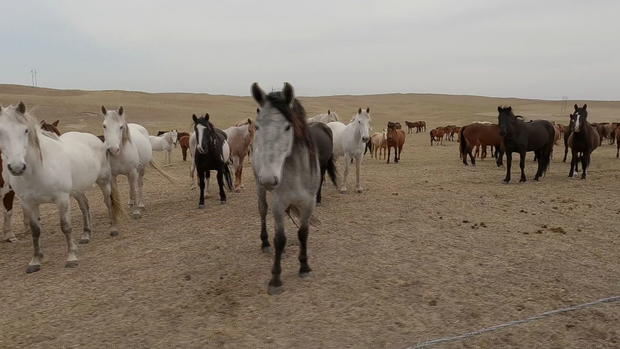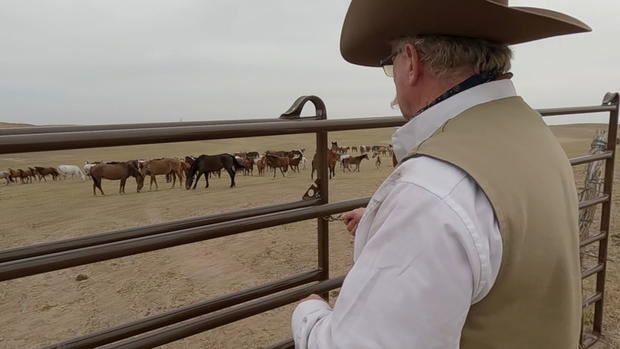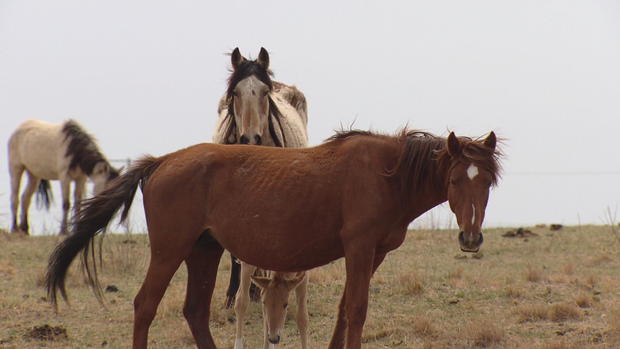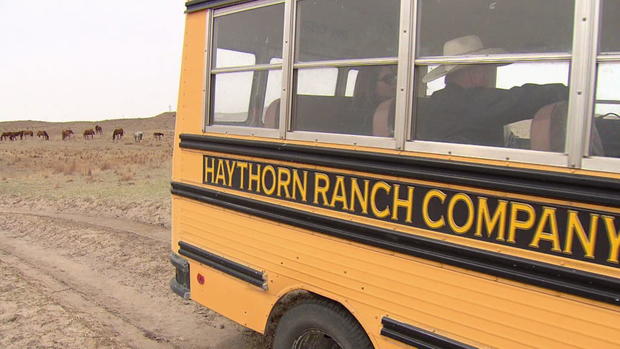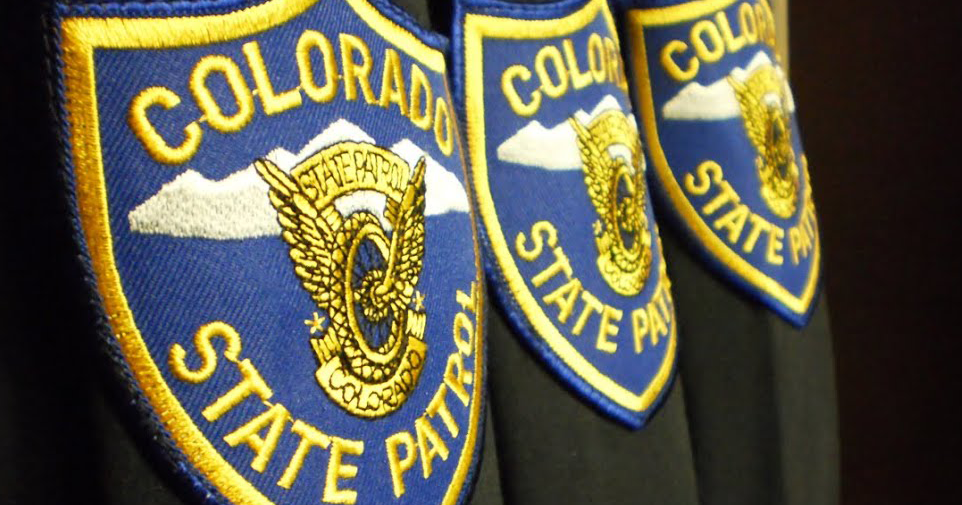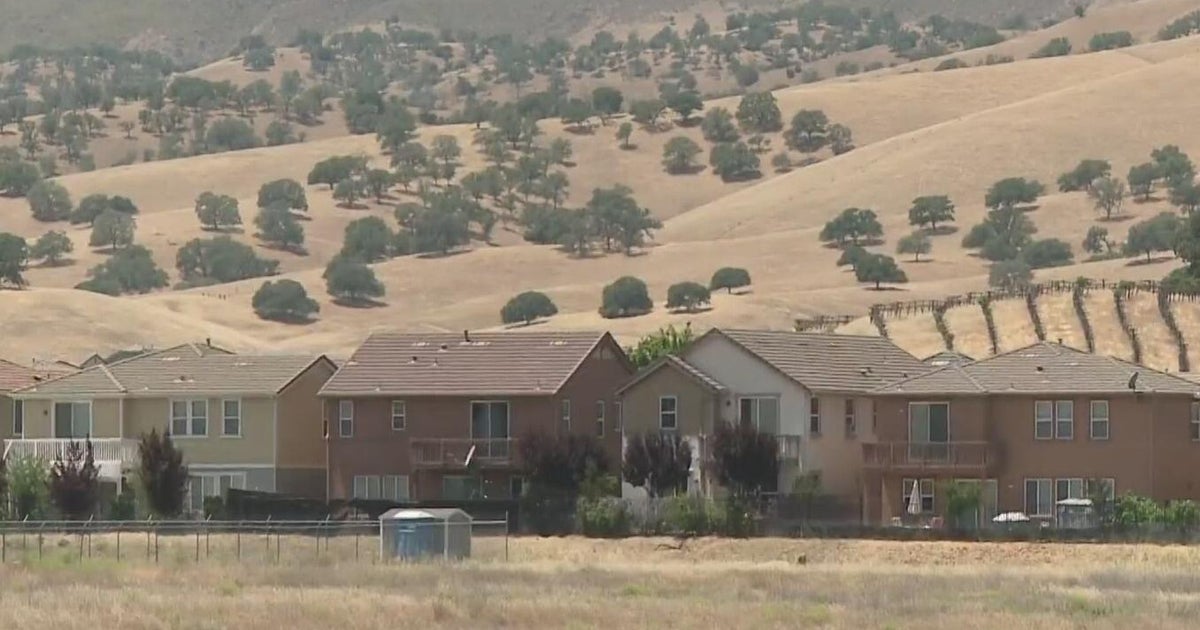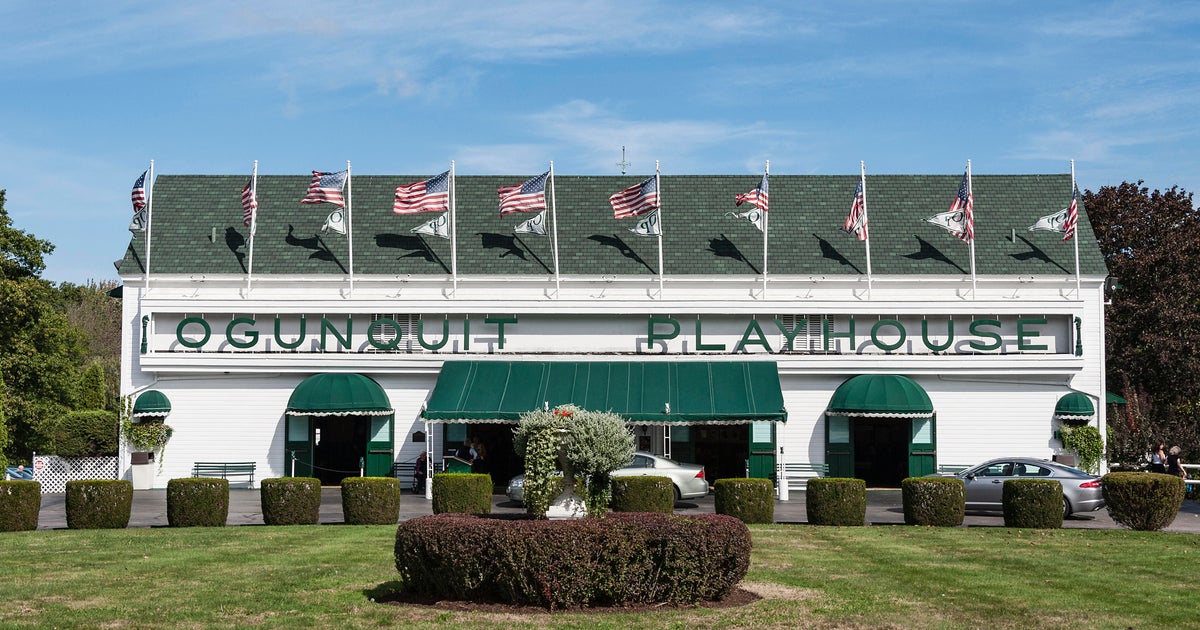$78M In Tax Dollars Spent Caring For Wild Horses In Captivity; Off-Range Pasture Owner Says His Ranch Is 'All-Inclusive Resort' For Horses
MAXWELL, Neb. (CBS4) — In 2021, it cost $78 million in federal taxpayer money to care for nearly 60,000 wild horses and burros that were rounded up out of the wild and moved into holding facilities run by the Bureau of Land Management. Some horse advocates say that's a waste of taxpayer dollars, but the BLM says it's a necessary expense.
So, CBS4 requested a tour of one of the dozens of private facilities across the U.S. that have federal contracts to hold wild horses long term, to get a deeper look at how taxpayer dollars are spent on the program.
WATCH RELATED CBS4 INVESTIGATION: Feds Criticized Over Wild Horse Roundups In Favor Of Livestock Industry, Advocates Call It 'Complete Scam On The U.S. Taxpayer'
Because many off-range pastures are privately owned, it's unusual for the public to get a look inside, making some horse advocates skeptical of treatment.
But when CBS4 news cameras were given a rare tour of a facility in Maxwell, Neb., in late April, the more than 900 horses relocated there appeared healthy with plenty of room to roam.
Harry Haythorn runs the off-range pasture in Maxwell, located about a four-hour drive northeast of Denver, just across the border of the Mountain and Central time zones. He says he takes great pride and joy in caring for the horses.
"I like to call it an all-inclusive resort when they come here," Haythorn said.
When the BLM rounds up horses out of the wild, they are sent to short-term holding facilities, like the one in Cañon City in southern Colorado.
From there, many horses are adopted, but those that aren't are sent to long-term holdings, like Haythorn's ranch.
His ranch holds horses that have been rounded up from Colorado, Utah, Nevada, Idaho, California, and Wyoming.
Haythorn's family has been ranching in Nebraska since the 1800s. He used to ranch cattle but applied for a wild horse contract a few years ago as it became more difficult to make ends meet.
Now he's been under contract for nearly two years, receiving $1 million a year from the feds, and says it's been a "godsend."
"This gives us a stable, steady income; it's not a get rich quick scheme by any means," Haythorn said. "It costs about $650-750,000 a year just to keep the lights on. I've got a little debt that I have to pay, because I was trying to keep this ranch going... so now you're getting really close to that million dollars. So, are we going to make money? Yeah, we're going to make money, but we're not going to make a huge amount of money."
In total, the BLM spent $112.273 million on its Wild Horse and Burro Program in 2021.
Wild horse advocates say it's a waste of taxpayer money to remove horses from the wild and put them into off-range holding facilities, arguing it costs zero dollars to feed the horses remaining wild and free on public lands.
"The excessive use of tax dollars here is deeply concerning, there is clearly a far more cost-effective way of managing these horses," said Scott Wilson, a wildlife photographer and board member for the American Wild Horse Campaign.
Wilson says removing wild horses from the wild is an unnecessary and cruel practice. He thinks more aggressive birth control methods should be used for population control.
"The wild horses have no voice, that's why we have to speak up for and defend their right to live free and eat free on those lands," Wilson said.
But John Neill, Bureau of Land Management Off-Range Pasture Contractor Representative, says removals are critical to controlling the horse population, saying there aren't enough resources on public lands to sustain the horses.
"Rangelands in the west are very sensitive, there's lack of moisture there, there's severe drought all the time, and in drought conditions when there's an overpopulation of animals, animals run out of feed and water," Neill said. "It's a horrible way for these horses to have to live, to have to travel miles and miles between their water source and then travel back the same distance to go find forage again."
But Wilson points out the BLM allows ranchers to graze thousands of cattle and sheep on those same lands.
"There are 30 times the number of cattle and sheep on these lands set aside for the protection of our horses than there are horses," Wilson said. "The population of livestock needs to be reduced on these public lands in order to sustain and conserve the horse populations for the future."
Other wild horse advocates agree.
"The Bureau of Land Management's Wild Horse and Burro Program is a financial boondoggle," said Scott Beckstead with the Center for a Humane Economy. "The American taxpayer is being swindled; this agency will spend tens of millions of dollars removing wild horses and burros from our public lands to make way for cattle and sheep."
CBS4 asked Neill about those concerns.
"BLM is a multiple-use agency, we don't just manage for one resource such as wild horses and burros, we are mandated to manage for multiple resources; livestock grazing is one of those things," Neill said. "Livestock is much easier to manage because these animals are domestic, they're not out there on a year-round basis. They're only out there during their grazing season, and they're removed off. So, they're not out there impacting the landscape on a year-round basis. These wild horses, it's the very opposite. They are not domesticated. We don't have the ability to just go move them from one spot to the other spot. So, the impacts with the wild horses can be much more extreme."
The BLM is currently seeking more contracts for long-term holding pastures and plans to remove 20,000 more wild horses and burros from wild public lands nationwide this year.
That worries horse advocates, not only about tax dollar use but also for the horses' welfare, saying helicopter roundups removing horses from the wild cause broken legs and fatal injuries.
And once horses are moved to holding facilities, they're at risk of diseases they otherwise wouldn't have faced in the wild.
Just within the last two weeks at the Cañon City facility, 129 once-wild horses have died from an equine influenza virus outbreak. At another short-term holding facility in Wheatland, Wyo., 11 horses have died in two months from a horse illness commonly known as strangles.
Advocates say the outbreaks are emblematic of how the BLM fails federally-protected wild horses.
Neill says the BLM works hard to prevent outbreaks and deaths. To learn more about the BLM's Comprehensive Animal Welfare Program, click here.
"Our protocol is to make sure that all these animals are properly vaccinated with all the major equine disease vaccines out there, and that they're de-wormed," Neill said. "We have contract veterinarians on staff at all our facilities that are there, at times, on a daily basis or on an as-needed basis, to look at herd health, and treating the animals that may require any sort of treatment necessary. So, it's very well monitored throughout our entire program."
At Haythorn's ranch, he says no outbreaks have happened yet, but says a few horses have died since his contract began, with a mortality rate less than 1%.
"I had a couple of horses die of injuries, and I had a couple just die of natural causes, one was old," Haythorn said.
Haythorn says the BLM inspects his ranch once a month and his horses receive regular vet checks. He also sends off the horses' feces to laboratories to ensure the horses are receiving proper nutrition.
"I just want to do the best I can for this ranch, for this range, and for these horses," Haythorn said.
Haythorn, his wife, children, and grandkids all work on the ranch to care for the horses. He says they love them like family.
"We are wired to take care of these animals, and I mean, it's just it's in our DNA," Haythorn said. "Man do we love taking care of these horses; they just give you a good feeling, and then I'm not going to have to hire a psychiatrist. It's really cheap psychiatric care for me and my family, I know that."
RELATED: 'Complete Scam On The U.S. Taxpayer': Feds Criticized Over Wild Horse Removals In Favor Of Livestock
